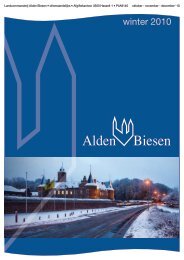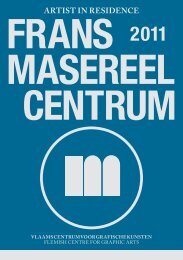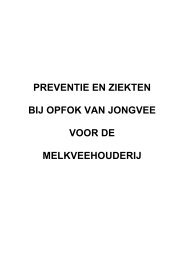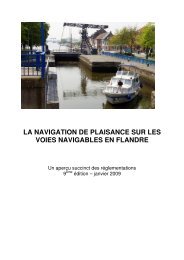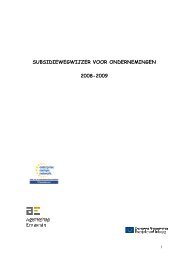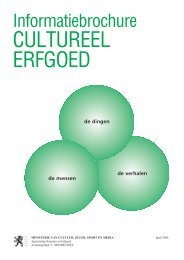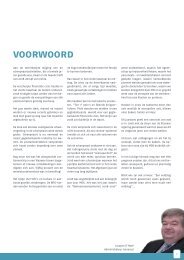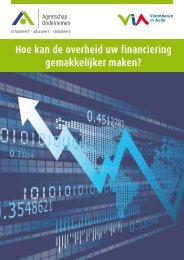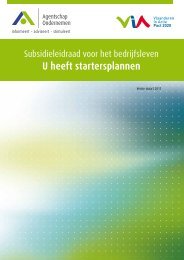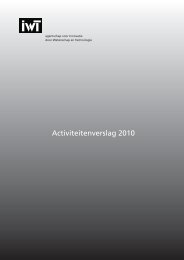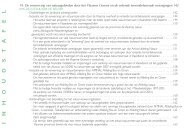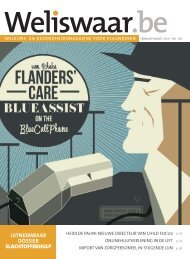Acknowledgements Book of abstracts - Publicaties - Vlaanderen.be
Acknowledgements Book of abstracts - Publicaties - Vlaanderen.be
Acknowledgements Book of abstracts - Publicaties - Vlaanderen.be
You also want an ePaper? Increase the reach of your titles
YUMPU automatically turns print PDFs into web optimized ePapers that Google loves.
Beata Kupiec-Teahan presents Workshop paper 8<br />
In workshop 3: Do extensive production systems provide high animal welfare?<br />
Friday, 12 Septem<strong>be</strong>r 2008 from 14h00-15h45 in the Aula chaired by Pete Goddard<br />
CONSUMER PERSPECTIVE<br />
B. Kupiec-Teahan<br />
183<br />
Workshop paper 8<br />
Food Marketing Research, Land Economy Research Group, Scottish Agricultural College, Edinburgh, UK<br />
Ethical consumerism has <strong>be</strong>en in the public focus for years and developed into a broad spectrum <strong>of</strong><br />
topical areas supported by the view that consumption and purchase decisions <strong>of</strong> consumers can<br />
influence well<strong>be</strong>ing <strong>of</strong> societies and environment. These early trends were later used to segment and<br />
add value to food products in a form <strong>of</strong> extrinsic, intangible attributes sought by socially<br />
responsible, ethical consumers.<br />
In the UK, animal welfare in the applied market context was introduced in 1994 to indicate the<br />
proportion <strong>of</strong> market with ethical attitudes. The first independent la<strong>be</strong>ling scheme, Freedom Food,<br />
was established to provide reassurance to consumers concerned with animal welfare and encourage<br />
<strong>be</strong>tter welfare standards in food production. Now industry considers animal welfare aspects <strong>of</strong><br />
consumer demand as both strength and opportunity for the meat sector. Increasing media coverage<br />
<strong>of</strong> animal welfare issues, access to information and broadening set <strong>of</strong> product alternatives creates an<br />
opportunity to market product attributes that relate to a natural, "green" environment. Thus, natural<br />
conditions are seen by consumers as <strong>be</strong>st for animal welfare. Meat consumers can "reconnect" with<br />
farmers when relating to extensive systems <strong>of</strong> production which are perceived as traditional and fit<br />
well into the moral self <strong>of</strong> contemporary customers. This is important as consumers <strong>of</strong>ten sever<br />
cognitive links <strong>be</strong>tween the animal and meat to avoid conflict with their value system. Images <strong>of</strong><br />
animals living free, in native environments, can <strong>be</strong> also projected onto food; e.g. in a 2008 study the<br />
majority <strong>of</strong> consumers agreed with the statement that pasture-raised products are healthier.<br />
The undisputable, in the eyes <strong>of</strong> most consumers, contribution <strong>of</strong> industrial farming systems to poor<br />
animal welfare creates an opportunity to present extensive farming systems as an alternative which<br />
<strong>of</strong>fers <strong>be</strong>tter animal welfare and quality <strong>of</strong> food on top <strong>of</strong> <strong>be</strong>nefits to environment and the<br />
countryside.<br />
Contact information: Beata Kupiec-Teahan or email b.kupiec@sac.ac.uk<br />
Complete address: Food Marketing Research, Land Economy Research Group, Scottish Agricultural<br />
College, Edinburgh, UK<br />
Species: General



